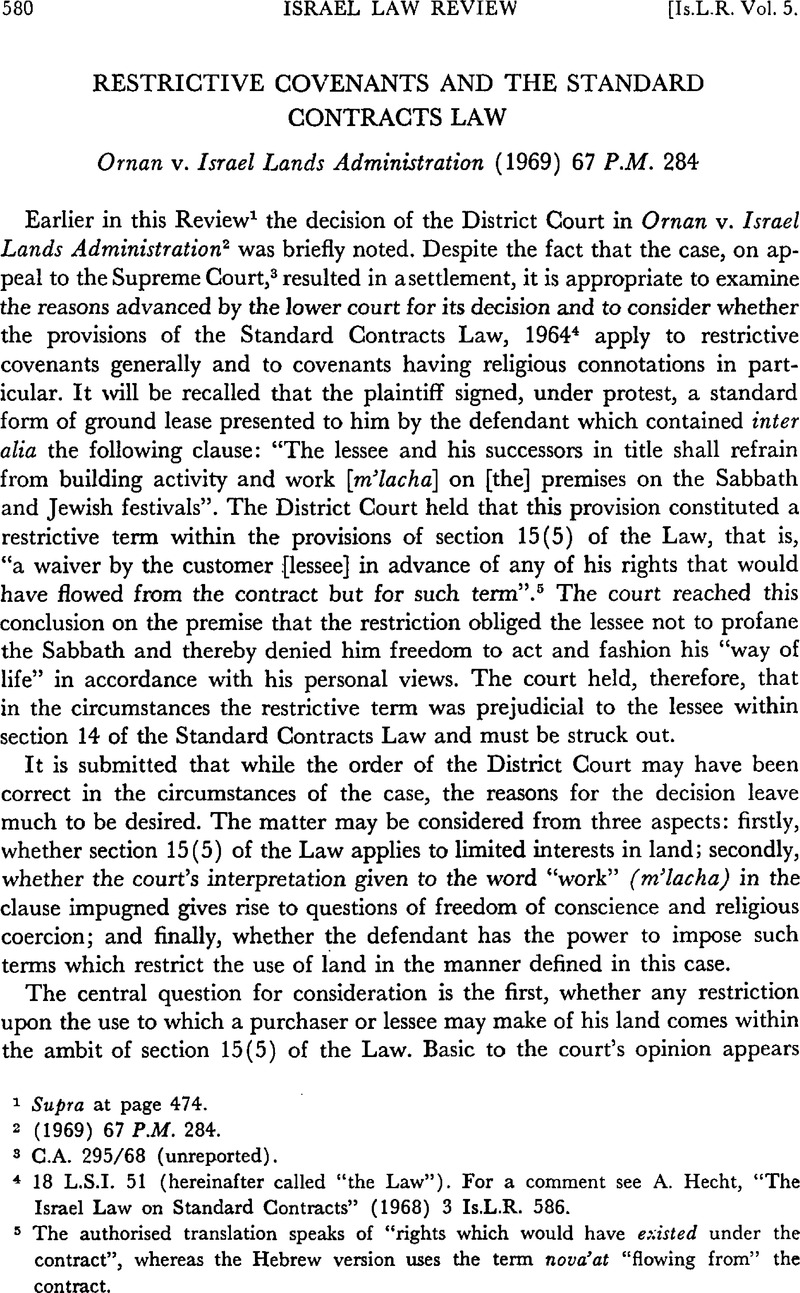Published online by Cambridge University Press: 12 February 2016

1 Supra at page 474.
2 (1969) 67 P.M. 284.
3 C.A. 295/68 (unreported).
4 18 L.S.I. 51 (hereinafter called “the Law”). For a comment see Hecht, A., “The Israel Law on Standard Contracts” (1968) 3 Is.L.R. 586.Google Scholar
5 The authorised translation speaks of “rights which would have existed under the contract”, whereas the Hebrew version uses the term nova'at “flowing from” the contract.
6 Hooper, E. A., Civil Law of Palestine and Transjordan (translation), London, 1934.Google Scholar
7 15 L.S.I. 52. This law relates specifically to the prevention of noise, smell and pollution of the environment and empowers the Minister of the Interior to set performance standards in these matters by regulation.
8 These schemes are approved and enforceable by virtue of the Building and Planning Law, 1965, 19 L.S.I. 330.
9 By the terms of the settlement “m'lacha” was defined to mean the “carrying on of business and manual labour performed regularly by the tenant for consideration, or performed by any other person for consideration in public”.
10 1 L.S.I. 7 as amended by the Days of Rest Ordinance, 1948, 1 L.S.I. 18.
11 5 L.S.I. 125.
12 It is not uncommon to find in such building schemes a ban upon the hanging out of laundry on Sundays. If such a condition were imposed in Israel with regard to the Sabbath day, would it constitute religious corecion?
13 Supra note 2 at page 291.
14 14 L.S.I. 50.
15 Ibid., section 3 provides as follows: “The government shall appoint an ‘Israel Lands Council’ which shall lay down the land policy in accordance with which the Administration shall act, shall supervise the activities of the Administration and shall approve the draft of its budget, which shall be fixed by Law”.
16 The compromise settlement reached on appeal and the form of the order which substitutes the interpretation agreed upon, “instead of the decision of the District Court”, raises incidentally interesting questions as to the precise effect of that judgment. This is a jurisprudential problem which requires further investigation. In the absence of an express overruling of the lower court's decision one cannot be sure of the precise effect of the Supreme Court's decision with regard to the ratio decidendi of the judgment of the District Court. Has the Supreme Court rejected the wide interpretation of section 15 (5) of the Law? Has it rejected the ultra vires argument regarding the power of the Israel Lands Administration to impose conditions such as the one impugned? Or has it only disagreed with the interpretation of “m'lacha”?